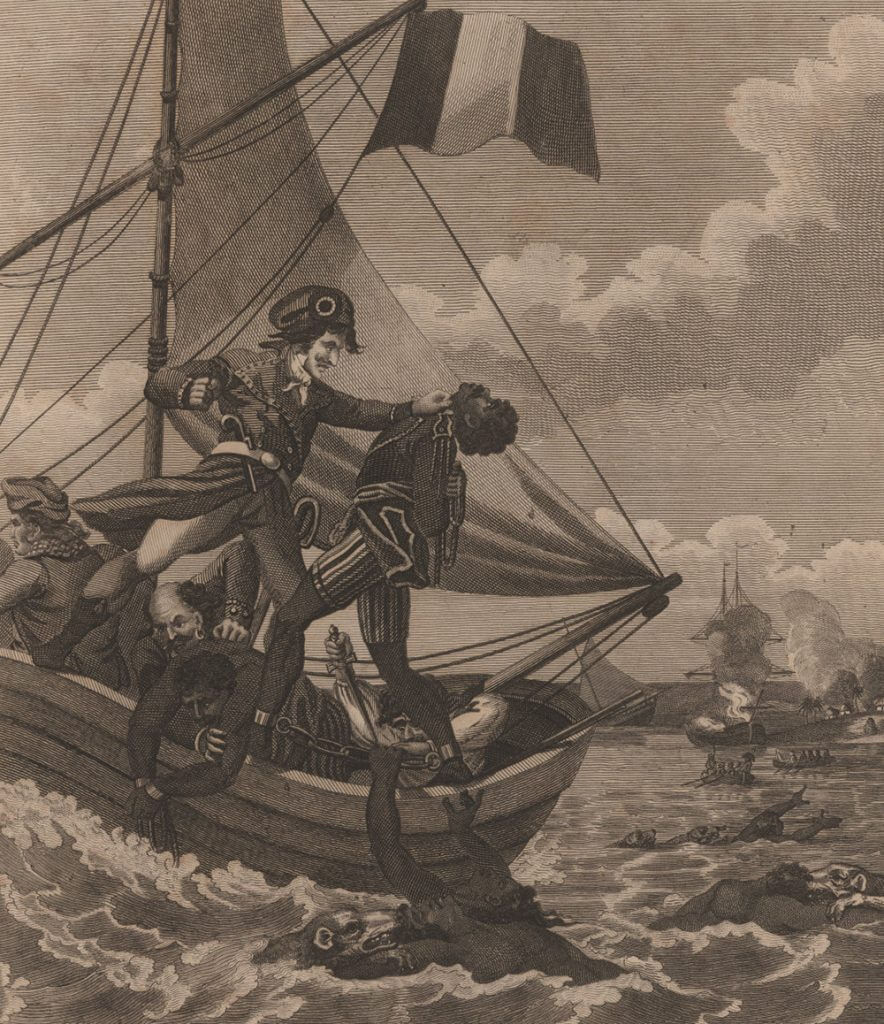Updated January 18, 2023
About Haitian Revolution
The Haitian Revolution is occasionally called the most significant and potent slave revolution in the Western Hemisphere. Enslaved people started the revolt in 1791, and by the year 1803, they had put an end to not only slavery but also the French reign over the Haitian colony. On either hand, the Haitian Revolution was significantly challenging, with several co-occurring revolutions.
The French Revolution of 1789 impacted these revolutions, embodying a new vision of human rights, global citizenship, and involvement in governance. The Haitian people eventually gained independence from France through the fight, becoming the first country formed by formerly enslaved people.
(Image Credit: Race.ed)
Onset of the Haitian Revolution
The large majority of Haiti’s population, which was then the very prosperous French colony of Saint-Domingue, was made up of enslaved Africans. White plantation owners, white artisans and merchants, and affranchis (free persons of mixed or African heritage), some wealthier than the white artisans and shopkeepers, made up the remainder. The affranchis’ thwarted goals, the harshness of enslavers, and motivation from the French Revolution were all factors in the Haitian Revolution.
Causes of the Haitian Revolution
- The lives of the enslaved people were tough in the 1700s. The enslaved people had to wake up before sunrise and work till the end of the day. They had to take up harvest activities in the sun’s scorching heat without any break. To break free from this never-ending cycle, the enslaved people had only one option, to start an uprising.
- The system of slavery resulted in a unique social class division in Saint-Dominique.
- Plantation owners stood at the top of the food chain since they controlled most lands and enslaved people.
- The petit Blancs, a socioeconomic class comprised of diverse merchants and artisans, came after the proprietors. Some petit Blancs owned enslaved people, but not nearly as many as plantation owners.
- The third socioeconomic class consisted of persons of mixed European and African ancestry. Although this group was free of slavery and allowed to possess property, they had few privileges and were not legally considered citizens.
- France was in the grip of a revolution beginning in 1789. Around this period, the government started imposing customs in the colonies, forcing the inhabitants of Saint-Dominique to pay more taxes on all items imported into the province.
- Many plantation owners also were dissatisfied with the idea that they could only trade with France. To make matters worse, Saint-residents Dominique did not influence the French government.
Impact
- During the Haitian Revolution, over 100,000 people died. Only a few parts of the island have excluded the fire, conflict, sickness, and general mayhem.
- The sugar-based economy had suffered greatly, and newly liberated Haitians faced the difficult task of rebuilding their liberated society.
- Following the revolution, Haiti experienced a civil war. Haiti split into two different powers at the end of the war.
- General Alexandre Petion ruled the south of Haiti. In the north, Henri Christophe declared himself king. He began building the Citadel, a massive fortress built to fight any foreign invaders who may desire to conquer Haiti and reestablish slavery.
- Whites in Europe and the American states were naturally frightened by the Haitian slave rebellion, which resulted in a country controlled by black people.
- The German Coast Uprising in Louisiana in 1811, eight years after Haiti’s freedom, turned into the most severe slave revolt in the United States. There is no question that participants in the German Coast Uprising were inspired by the Haitian Revolution, even if they were nowhere as successful.
Conclusion
The Haitian Revolution resulted in the establishment of Latin America’s first independent and post-colonial state headed by Black people, which resulted in significant changes and impacted global politics. The revolution is the most important event in Africans’ history in the New World. It served as an inspiration for later acts of anti-colonial nationalism, notably the events of the Algerian War during the 1950s and 1960s. The actions of the Haitian Revolution directly linked to the fall and later collapse of the trans-Atlantic slave trade, and Haiti stands as an example of many nations’ liberation struggles.

